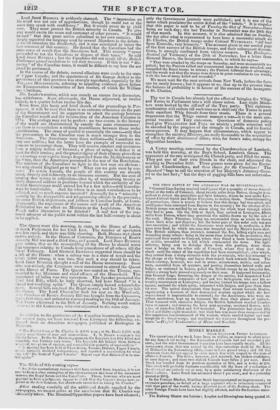THE FIRST BATTLE IN THE AMERICAN WAR or INDEPENDENCE.
"General Gage having received intelligence that a quantity of stores was col- lected at the town of Concord, about twenty miles front Boston, thought it ex- pedient to detach the grenadiers and light infantry, whom he sent under Lieu- tenant-Colonel Smith and Major Pitcairne, to destroy them. Notwithstanding all precautions, there is reason to believe that this design had transpired, and intelligence been conveyed from Boston to the country; for the advance of the British troops was notified by an alarm along the whole tract through which they had to pass. On the 19th of April, they arrived at Lexington, fifteen miles from Boston, where they perceived the militia drawn up by the side of the road. Major Pitcairn, riding up, conimauded them as rebels to throw down their arms and disperse; but the latter part of this order only was put into execution ; and whilst the Americans were retiring in confusion, a few guns were fired, by which one man was wounded and the Major's horse shot. The British soldiers, thus irritated, returned the fire, killing eight men and wounding many others: being in the mean time joined by the grenadiers, they continued their march to Concord, where they found a more numerous party of militia assembled on a hill which commanded the town. The light infantry, being sent to dislodge them from this position, drove them over a bridge on the other side of Concord, where they kept them in check until the object of the expedition had been accomplished ; after which, they retired from a sharp skirmish with the provincials, who had returned to the charge at the bridge, and began their march back towards Boston. The whole country, however, was now in arms: minute-men, militia, and volun- teers, assembled from all quarters, and posting themselves behind walls and hedges, or stationed in houses, galled the British troops by an irregular fire, whilst a strong body pressed vigorously on their rear. It happened fortunately, that General Gage, foreseeing the danger of the service, had despatched Lord Percy, with sixteen companies of foot and two field-pieses, who met his re- treating countrymen at Lexington ; and having formed his troops into a hollow square, enclosed the whole party, exhausted with fatigue, and gave them time fur rest. The united detachments then began their retreat towards Boston, experiencing a foretaste of that destructive warfare against which the best armies found it impracticable to contend ; for the Americans, who were ex- celleat marksmen, kept up an incessant fire from their places of ambush. Thus harassed with excessive fatigue, the British battalions reached Charles- town at sunset ; and crossing the ferry next morning, reentered Boston, with a loss of sixty-five killed and 180 wounded. The provincials had about fifty killed and thirty-eight wounded : but their loss was more than compensated by this auspicious commencement of the contest, which excited hatred and con- tempt fur tie Ito)al troops, and confirmed the waverers throughout the pro- viace."—Ilajlics' Continuation of Hume and &mita&


























 Previous page
Previous page